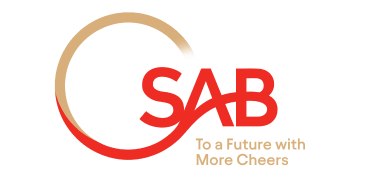RAISING A GLASS TO GLASS – SAB IS MORE THAN COMMITTED TO ITS BOTTLES
As the continent commits to the path of economic recovery, SAB is betting on the glass.
In 2020, the South African Breweries (SAB) officially secured a local foothold in the glass manufacturing sector through Isanti Glass’s acquisition of Nampak Glass. This was a windfall to the local glass industry and provided economic and environmental hope to an economy torn between recovery and environmental sustainability.
This acquisition provided the glass industry with a much-needed boon, yet economic crises outside the industry’s control continue to beleaguer glass packaging efforts. Economic instability, global supply chain disruptions, and financially strained consumers all serve to get in the way of growth.
According to SAB, VP of Corporate Affairs Zoleka Lisa , there is hope. “Our industry hinges on glass. If you think of beer, you think of an iconic beer bottle. We are willing to walk with this industry on a journey of growth. But that journey will require commitment from both private and public sectors. Together with governments and communities our glass packaging industry can shine once more. It has to.”
For packaging is a way to connect with consumers, enhance brands and add value through convenience. “We rely heavily on glass packaging because it is eco-friendly, recyclable, and its transparency allows us to showcase the quality of our product and preserves the taste of our beers.”
Lisa believes the glass industry represents a golden opportunity for the African economy. “We often overlook glass, but people tend to forget that glass is reusable, stable, durable and completely recyclable. Not to mention, we have an incredible foundation from a manufacturing perspective.”
Lisa says this puts glass at the top of the packaging pile as companies, especially those in the beverages industry, seek to meet the demands of a sustainable future. He says SAB has set sustainability goals for 2025 to “positively impact communities around the world and to deliver measurable results”.
Part of SAB’s sustainability goals are to ensure that 100% of the company’s products will be in packaging that is returnable or made from majority-recycled content. According to SAB’s parent company and world’s largest brewer, Anheuser-Busch InBev (AB-InBev), from 2012 to 2017 the company managed to remove at least 140,000 tons of material from its packaging globally and has achieved over 99% recycling rates. AB-InBev, and by extension, SAB, is set to continue its circular packaging initiatives as it procures a greater stake in the global glass manufacturing and recycling industry.
In South Africa, Lisa says the importance of the glass industry cannot be overstated but warns that the industry is in trouble. The unexpected and unwarranted alcohol bans meant that glass manufacturers were left struggling with reduced stock after suspending plans for new plants.
“SAB has been unable to import enough glass bottles due to the global shipping crisis, so we were left with no option but to switch to aluminium cans in the interim. Now, there is not enough glass available in the country to pack all our beers. If we want the glass packaging industry to survive, we are going to need beverage brands like SAB and compacts with government to thrive,” says Lisa.
He notes that in sub-Saharan Africa the alcoholic beverage market is the largest consumer market for glass packaging. “It is true that there has been a slowdown in demand for glass in some African countries, I believe this could be reversed with the rise of beverages and local procurement directives,” says Lisa.
He continues, “We can’t allow the industry to be unnecessarily stymied by government policies like bans and overly inflated excise taxes. This has an indirect impact on our value chain which includes our need for glass. A healthy beverages sector produces a healthy packaging sector so we can’t afford to let each other down.”
Over and above government intervention, Lisa says the glass packaging industry faces logistical, energy, and fiscal challenges and competition from other packaging materials. This includes the issues around shipping, load shedding, increased demand for plastics, and even the reduction in consumer spending.
However, Lisa remains optimistic and believes the glass packaging industry remains an attractive market with low competition, a growing alcohol beverage market and falling imports driven by local production capacity.
He says the glass packaging industry in Africa is a consolidated environment with relatively high barriers to entry, where demand is largely met by a small number of incumbent glass packaging manufacturers. Lisa says, “This creates opportunities for well-established manufactures to gain market share over the medium to long-term and provides less competition for new companies looking to enter the market.”
All-in-all, when you wipe away the obstructions, Lisa believes the future of the glass packaging industry is crystal clear. “There is opportunity, sustainability and growth in the future of glass – a form of packaging that will always be an integral part of the beer experience. We couldn’t be prouder to have a stake in this sector,” concludes Lisa.

